
Disclaimer: The views and opinions expressed herein are solely those of the author and/or guest contributors and do not necessarily state or reflect those of
The Perfume Magazine LLC, Raphaella Brescia Barkley or Mark David Boberick.
All content included on this site, such as text, graphics, logos, icons, videos and images is the property of The Perfume Magazine, LLC. or its content suppliers and protected by United States and international copyright laws. The compilation of all content on this site is the exclusive property of The Perfume Magazine, LLC. and protected by U.S. and international copyright laws.
The Perfume Magazine Banner was designed exclusively by GIRVIN and is the property of The Perfume Magazine, LLC. and are protected by U.S.and international copyright laws. Additional Banner information can be found on our ABOUT page.
All images appearing in the banner are registered trademarks of their respected company and are used with permission.
© Copyright. 2011. All Rights Reserved. The Perfume Magazine LLC
People come into our lives at any given time, sometimes you know the reason behind the encounter, and sometimes you don’t. I was meant to ‘meet’ Mandy Aftel.
Mandy is hands down one of the leading natural perfumers in the industry, having gained mainstream recognition. She is remarkably multi-faceted; a FiFi Award Finalist, teacher, collaborator, a stunning author, and she has been a trailblazer in the world of natural perfumery.
Our paths have crossed even in my day-to-day, whether it was reading Voltaire’s Candide and receiving her samples simultaneously (which included her version of Candide) or getting her book Essence and Alchemy in the mail, which I had been waiting for patiently.
I believe in omens, this was one of them.
Dana El Masri: What is your earliest scent memory?
Mandy Aftel: I would think my earliest scent memory was probably of my mother’s mink coat. I grew up in the Midwest, in Detroit. My mother had a mink coat, which she used to spray with Joy. It would stay on the mink for a long time. She would go by and I would smell the Joy mixed with the mink and it would hold it and it was a very interesting smell, almost like suede. A terrific smell, I loved it.
I like smells, I’ve liked smells my whole life. Awful smells and good smells, I think they are incredible. Also, certain smells in the atmosphere, it’s vague. Not the smell of a thing of example, but I think smells for me are more connected to larger things like the time of day or the time of the year, how the air smells to me. In a certain area, like in New York or the woods, things like that, smells related to time and space, are very alluring to me. Smell connects you to life; it is so alive, however a person experiences that. Whether it is the smell of food or the air, that human and animal aspect of people.
DM: I absolutely agree, it’s like they say, even if you cover up your eyes, ears, and mouth, you can still never stop breathing.
MA: Exactly. It is about that aspect of life, for me, and for people, when I watch them and when I teach them. It is very intimate and personal and still very universal.
DM: How does the idea of a fragrance come to you?
MA: It has changed over time. Ideas used to come to me in one way, now they come to me in two ways I think. They often come to me through the materials themselves because I am a relentless ‘sourcer’ of materials. I spend a lot of time looking for things, and trying things. I really enjoy the materials themselves, they are incredible inspiration; what they smell like (the essences), the differences between them, the varieties I can find…they thrill me.
That’s one piece of it, and sometimes in my mind, I’ll be thinking of two things, you know, how would this be with this, and that would be the genesis of something that I’m doing. But also, sometimes I have a kind of experience or a feeling or something like that, that I could be inspired by to make a perfume from. It’s not even down to words so much as it is a feeling or an experience in life. It could be very fleeting; like a painter would make a painting out of it…I would make a perfume. And that would be my way of not directly taking a photograph of it but trying to express, to put that into the bottle. Sometimes, giving that to the person who smells it. Hopefully, giving them a bit of that experience that was in my head. It is a communication between myself and the person who smells the perfume, I think of it that way. Sometimes it is more successful than others, but that is what is inspiring to me.
DM: Do your creations tend to change significantly from the concept to the final product, or do you have a clear visual of what it will be right from the start?
MA: Yes totally! I don’t have a concept usually. Let’s take Tango for example. It was kind of sexy and dirty and I wanted to make something like that. And Tango was what was in my mind, but it could have been anything, but that was what came out. I have vague ideas but not a plan. Here’s the nuance for me, I don’t have a plan ahead but I have a sense of structure, it isn’t just anything either. It happens as I do it. I have a lot of faith in the process that I’m in and I also edit very strongly. I don’t have a free for all in what I am doing, I am very critical as I’m working. I start to leave things out pretty early on.
DM: While in your creative process, which part of the perfume do you start with? Is it always the same?
MA: I often start with the two essences. Of an idea of something I want to make. Like Secret Garden, which is the last thing I made, or Oud Luban. Sometimes too, I’m unaware that the ideas are there and then I dump them out, like dumping your purse on the table…and there it is!
I am pretty critical of what I make. He told me to do whatever I wanted to do and it kind of just popped right out of my head. I had no idea it was in there. There it was! It was exciting to me, I made it pretty quickly, I tweaked it a little and that was it, it was all done. It is a bad sign for me, if I’m making something over and over; it means something’s not right. I don’t make things a million times.
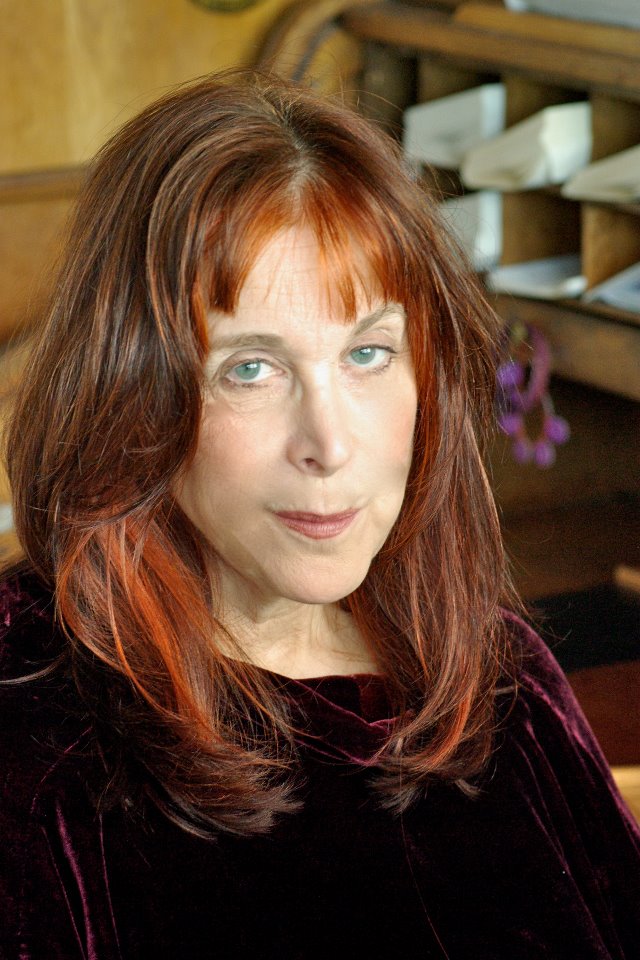
Mandy Aftel of Aftelier Perfumes
February 22, 2012
By Dana El Masri
Contributor
INTERVIEWS
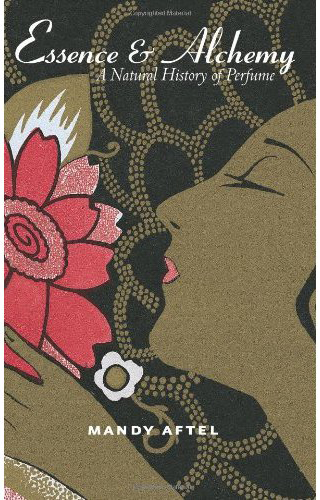
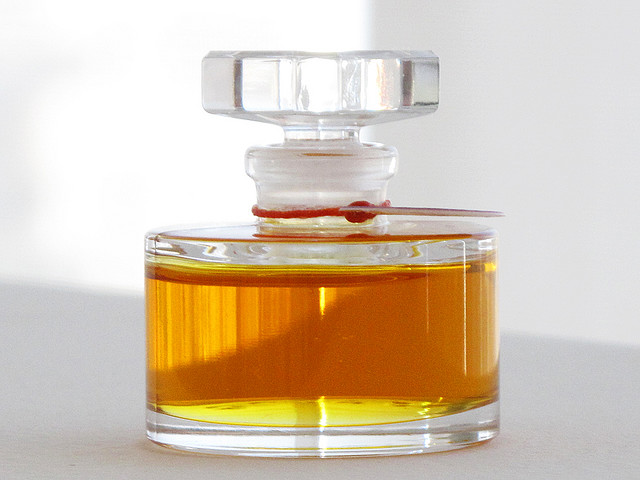
DM: Being a self-taught perfumer, which part of your skill set was the most important for you at the beginning of your career?
MA: That’s an interesting question. I think...my unrelenting desire for knowledge. Understanding the materials from the inside out. That’s still big for me, knowing and understanding the essences, for their aromatic capacities and their ability to work with one another, which changes the minute you add something new. Learning about them alone, only takes you so far but that’s a good beginning. And I was just really interested in that.
And I think also the ability to be self-critical. To edit and be critical of my own work, and later on (which took a lot of work), finding where all the flaws were and learning how to fix them. When you make something, and it spreads out, like say, a hand of cards, knowing which card to pull out and work on. Having a way of understanding what you’ve done and to isolate where the problem is because that’s the only way you can edit and fix it. I think some of that comes from my work as a writer and the idea of editing and changing things around. That’s a piece of what I teach, trying to find where the problems are and thinking of fixing that or throwing it out or whatever. I think that’s very important. I love the process of making perfumes, and I love thinking about that process. I love everything about it.
DM: It’s rewarding, isn’t it?
MA: It is rewarding yes, and it’s not like anything goes, not for me. Everything in my line, the choices in my line are very real and deep for me. I approach everything about my perfume and my business as an artist. That’s where it all starts for me, trying to create beauty down to the way we mail things out from here. It’s all a part of wanting to do it in the most beautiful way, according to my own aesthetics that I can do and try to give that to other people, for people who share my taste or values. That’s what it’s all about for me.
DM: Well, you’ve got a big fan on this side of the world, I’ll tell you that much!
MA: Thank you, I feel like it’s an exchange where I find the right people too. I am so deeply grateful to the people who like my perfumes and respond to my work. It’s an amazing experience and I try to show how much that means to me. It really does mean an awful lot to me.
DM: It is very generous of you to want to share that kind of love with as many people as you can.
MA: I couldn’t believe the world that was sitting there, that most people did not know about, and I thought ‘oh my god, other people need to know about this’; it is a very exciting endeavor for me. I love love love what I do.
DM: One of the main issues perfumers seem to face is finishing a perfume, when do you know a creation is done?
MA: I really know when it’s done. And I know what you’re saying because I have students who can never leave it alone. I really don’t know that a creation is done until it has sat there because my stuff changes. Everything is aged before it leaves here. I have this internal intuition when I’m done with something. Though, I couldn’t point to it and say in any rational way that it’s done. It coheres; it comes into focus, if this means anything at all. It’s like it has everything it needs and nothing extra. Like Honey Blossom, I looked at what was extra and took it all out.
DM: Do you need to macerate your creations for a long time because they are all natural?
MA: If they have something like ambergris or an animal ingredient, like Secret Garden does, it changes for a really long time. But it’s not like it goes from a giraffe to a zebra! It’s in the quality of the smell, it’s more mellow, or richer. Because I age them, they tend to get better; a lot of them just get better as they marry over time.
DM - What ingredient phase are you in right now, do you have a favourite at the moment?
MA: Yes, I do have some stuff that is problematic that I’ve been trying to shove into things, that I haven’t found a home for yet! It’s in my mind, and when I’m up to do this next thing, I betcha they’ll pop out again. Oud was on my mind, but I found a home for it in Oud Luban. It won’t be the only place it will go, but I did have it so strongly featured, I feel like ‘oh good, I did a little bit of that’.
I want to use Alpha Ionone and I’m very interested in poplar buds, which are really hard. I used them in class once when I was teaching here and I got an even deeper understanding of how hard they are. They’ve got a lot of facets to them, and some of them are beautiful and some of them are putrid, I love all that. I have to be careful where it goes because the putrid pieces could hook up with other putrid pieces and I could make something awful, which has happened every time I’ve tried to put it into something! So I don’t know if it (poplar bud essence) will go in, but I’m very interested in it.
The other thing that I’ve realized too is that I’ve recently, in two perfumes, used the same ingredients. So I definitely know I won’t use them again. I hadn’t realized they were both in my last two perfumes until I looked at the ingredient list, so that’s kind of the opposite side of that problem. I thought ‘Oh these must’ve really been in my mind because I’ve used them twice’ – Benzoin and Patchouli, I know structurally why they’re in there but I’m not going to use them again for a little while.
I really really love essences from trees. (Poplar buds come from trees) I have a real love affair going on with scents that come from different trees and I LOVE absolutes. Tree absolutes are among my favourites. I’m sure those ingredients are going to find their way in. But I tend to be very fickle, I’ll like something then I’ll make something with it and feel a little complete, like I did with the Linden Blossom. And now, I think it will take me a while unless I need it. It’s almost like it will become a supporting character but it won’t be the main one now.
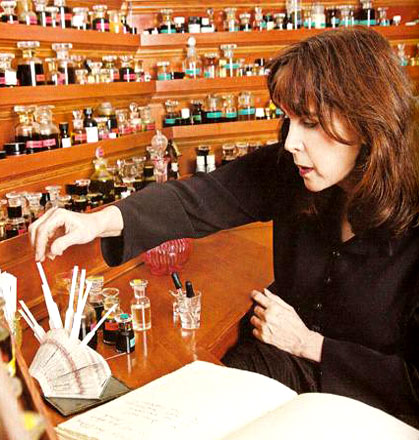
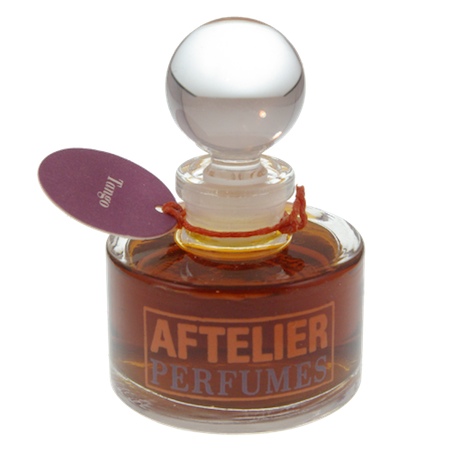
DM: That’s a good compromise!
MA: Yes, I think these things find their way, because after the main sketches are in, everything is all about the final perfume. Once I have the main things in, everything else is about what it contributes to the end. They are no longer themselves, they are supporting characters for me and then it’s all about the final conception. Like in Secret Garden, a lot of those things went in there because they were moving towards a conclusion, which became Secret Garden. But earlier on, it wasn’t like that.
I don’t know if I’ve said this before, but I see it like I’m climbing up this tree and then I go off on some branch, if it doesn’t work, I turn around and go back, get back on the tree again, go some other way. Then if it’s good, I keep going in that direction, otherwise I come back onto the tree, and the tree is kind of like the perfume. I’ll just find my way up to the top.
DM: And reach for the stars, let’s just say…
MA: And reach a completed perfume, let’s put it that way!
DM: I had seen that you mentioned layering spices vertically (referring to Parfum de Maroc) – how did you achieve that? Is there a technical way of doing so?
MA: I had based it on the old Moroccan spice recipe Ras-el Hanout, which means ‘top of the shop’. You have so many spices in it.
DM: Yes, there’s cinnamon, there’s nutmeg, clove…
MA: Spices are relatively difficult in perfumes because they’re kind of ‘pointy’ and aggressive and you end up with a mish-mash if you’re not careful.
That was for the cookbook I did, Aroma. And I knew I did not want it to have that pointy, harsh, potpourri spicy smell. So, I layered them, but I was careful. I put cardamom absolute, which is a base note, so that the spices would make it all the way down. It’s a very soft cardamom, most cardamoms are very abrasive; Cardamom essential oil is a top note and it’s very abrasive and I knew I wasn’t going to go that way. The cardamom absolute is very warm and yummy. So I put it down there with the resins and it’s got a pretty soft base. I really used a lot of rose, because rose will smooth things out. That was very conscious for me. I also moved further away from spicy notes, I put a lot of sparkle in the citrus at the top. So it was in my mind to work against all spices I had put in and still not work too much against them. That’s how I did it
.
DM: I had also read that you prefer to create perfumes with music on (as do I) – do your perfumes have soundtracks, artists/genres that stay with you during the process of making your perfume?
MA: I never make perfume without music on. It’s deafening! You know, I sometimes worry that the music I’m listening to will push my perfume one way or another, it would be interesting to see, but I haven’t gone that way yet. I just sort of go with where I am, I do have some favourites who I gravitate to and love the most. I really enjoy that; it feels to me like a part of the process.
DM: Out of curiosity, what kind of music do you listen to?
MA: I love all kinds of stuff, my absolute idol in the whole world is Bob Dylan; he’s it for me. Followed not far behind by Leonard Cohen. That’s been true my whole life and through all different periods, not just in the early days. I adore the music that Dylan is making now: so atmospheric and creative; such an incredible artist, I’m inspired by him entirely. His ability with words, as a songwriter is my biggest inspiration. 
DM: Speaking of processes, how did your collaboration with Andy Tauer come about? And what has it taught you?
MA: First and foremost, and it doesn’t sound like a lot, but I got to examine my own process. I was just in it and never looked at it, how I go about creating, what’s going on. It is quite instinctual, what I do. It made me think about it, write about it, put words on it. So it changed that piece of it for me, to know that I was going to have to verbalize it and hopefully make some sense to somebody out there. It was a whole separate process from actually doing it. ‘Why would you put this in, or take this out?’ I found it incredibly interesting to go through those steps, I enjoyed it a lot, and I learned a lot about how I create, and how I think. I also enjoyed what others have had to say, the other three perfumers so far were very different from one another and I enjoyed seeing how someone else goes about it (the creative process).
DM: As a teacher, what advice would you give a student like me who hopes to be a perfumer one day?
MA: Learning materials that are close to each other and learning how essences are different, and studying that is very important. So, let’s say, you’re thinking of sweet spices, like nutmeg, cinnamon and clove, ginger and pimento berry. To really sit down with that little group of spices and compare them to one another, and really make some notes, and not a lot, because I find a lot of notes aren’t always helpful. So note down how you describe these smells, focusing on where they are similar but pretty much where they are different.
And also, take note of their relative odor intensity; understanding how strong the odor profile is, which is one of the most important things to know for blending. Really get clear in your mind, as a perfumer, why you would choose, say, nutmeg as opposed to cinnamon, or clove as opposed to cinnamon. To have that precise understanding rather than a diffuse understanding of why you’re choosing exactly what you’re choosing to work with in your perfume. And that I feel is very useful. You know, like blood orange and sweet orange and bitter orange and compare those three.
DM: Oh I had such a hard time with the citruses when we first started at school, the bitter orange, and sweet orange and grapefruit always confused me! I would sit there for hours!
MA: It is very useful to know what each one would do inside a perfume. I do these odor studies all the time, I do them almost instinctively, I’ll be thinking to myself ‘why would I choose this’, ‘why would I choose that’ and some of it now is second nature because I’ve done this for so long, so I’m always thinking. Also, the more you add to your blend, the less it will work, the more you put in, the more doors close.
DM: And as a friend, do you have any advice inspired by life lessons?
MA: Yes. Do what you love! Because you’ll be doing it all day! It is the greatest thrill to love what you do- it is the greatest gift. It doesn’t feel like you’re working. So yes, do what you love, learn from your mistakes and be with the people you love.
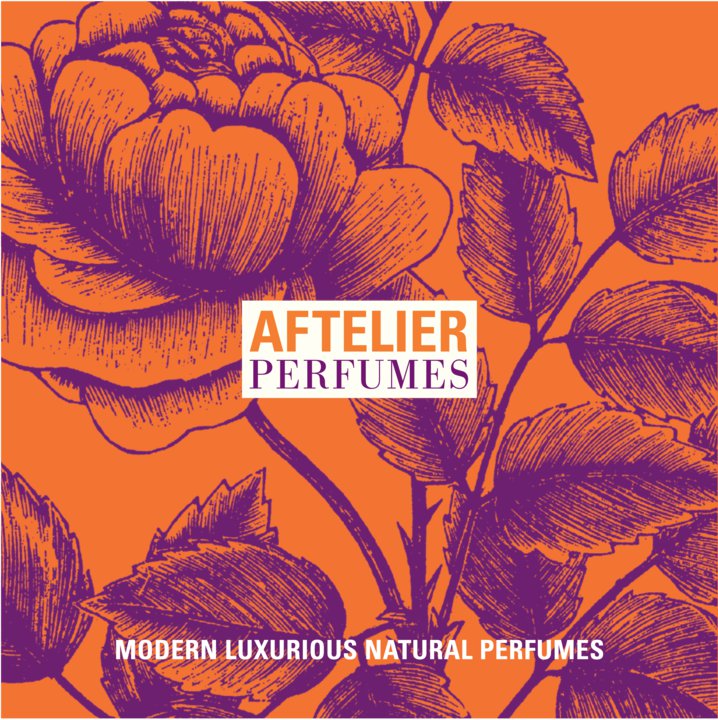
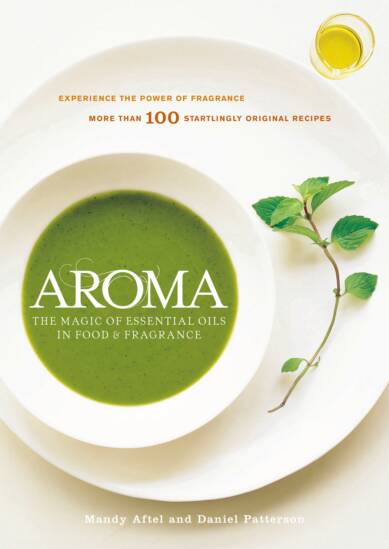
Images supplied by:
Mandy Aftel, Chris Stewart, Becca Eley, Nola Lopez, and Editor
DANA EL MASRI | CONTRIBUTOR
Dana El Masri is an aspiring perfumer and scent blogger.
When Dana first opened the pages of Tom Robbins’ classic “Jitterbug Perfume”, she knew she had found her calling - to create authentic and whimsical perfumes. Since then Dana worked at the niche fragrance house, L’Artisan Parfumeur and decided to pursue her dreams further at the Grasse Institute of Perfumery in France. During her studies, Dana’s recreation of the scent of luxury was chosen as the winning scent of the year.
Her personal collection blends melodies of the past and the present through scent and music - crafting a playful symphony of fragrances.
Now back in Montreal, Dana continues to grow and evolve as an aspiring perfumer while sharing her love for music, culture and scent on her blog www.thescentinel.com
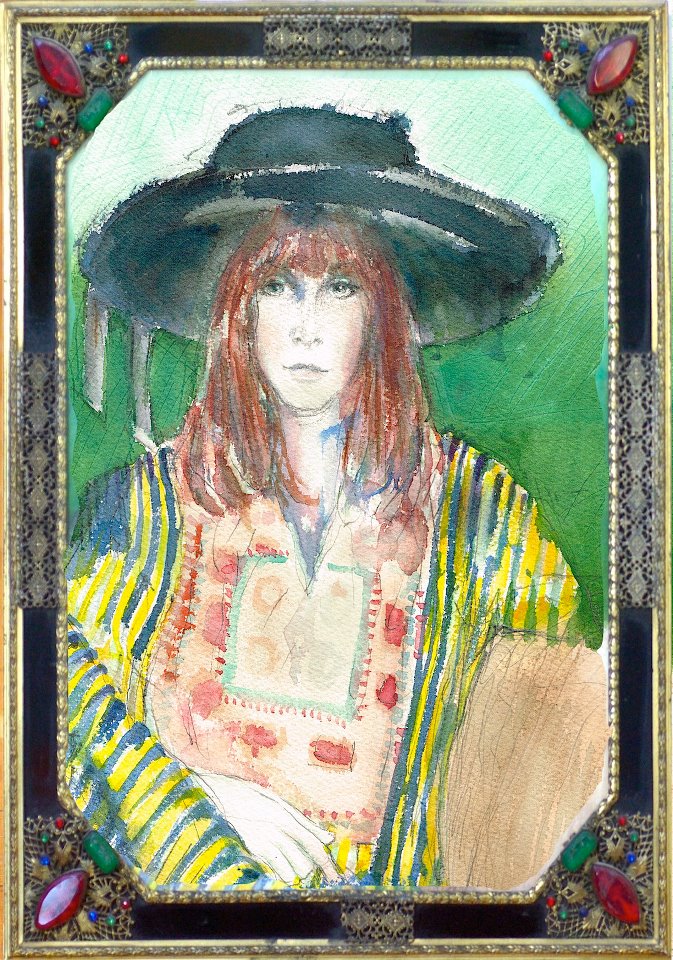
I have to say, Mandy gave me hope, and she reassured me without even trying to. She gave me a sense of solidarity by telling me to go for what I believed in, to trust in that inner voice that guides you to what you love. She made me feel like I wasn’t alone in this big dream of mine, and that I had someone, who barely even knew me, rooting for me. Like I was rooting for her. Just like Dylan would say: “I’ll let you be in my dreams, if I can be in yours.”